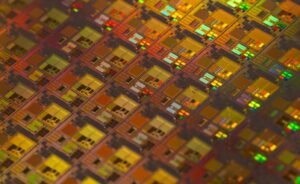Best AI Undergraduate Programs
Artificial Intelligence (AI) is a rapidly growing field with numerous applications in various industries. Pursuing an undergraduate degree in AI can provide the foundation and skills necessary to excel in this field. In this article, we will explore some of the top AI undergraduate programs available, providing insights into their curriculum, faculty, and opportunities.
Key Takeaways
- Choosing the right AI undergraduate program is crucial for a solid foundation in the field.
- Programs offering hands-on experience and research opportunities can enhance practical skills.
- Faculty expertise and industry collaborations contribute to program quality.
- Consider factors like reputation, alumni success, and available scholarships before making a decision.
Top AI Undergraduate Programs
When it comes to AI undergraduate programs, several institutions offer exceptional education and research opportunities. One of the leading programs is the Massachusetts Institute of Technology (MIT). Known for its strong technical and scientific foundation, MIT’s AI program provides a comprehensive curriculum that covers machine learning, natural language processing, robotics, and more. Students at MIT have access to state-of-the-art facilities and research collaborations with renowned organizations.
Another top-tier program is offered by Stanford University. Stanford’s AI undergraduate program emphasizes interdisciplinary studies, allowing students to explore AI in conjunction with other fields such as computer science, neuroscience, and linguistics. The program also provides ample research opportunities through various AI-focused labs and centers, including the Stanford Artificial Intelligence Laboratory (SAIL).
“Organizations like OpenAI and Google Brain actively collaborate with universities to develop AI technologies.”
In addition to MIT and Stanford, Carnegie Mellon University (CMU) is recognized for its exceptional AI program. CMU’s School of Computer Science offers a specialized track in AI that covers topics ranging from computer vision to cognitive robotics. The program focuses on hands-on experience, with various research projects available to students. CMU’s partnerships with leading tech companies and research organizations provide students with valuable industry exposure.
Program Comparison
| University | Program Highlights |
|---|---|
| MIT |
|
| Stanford |
|
| CMU |
|
Scholarships and Opportunities
Financial assistance through scholarships and opportunities for practical application are important considerations when choosing an AI undergraduate program. Institutions such as MIT and Stanford offer a range of scholarships, including those specific to AI and related fields. Additionally, these universities facilitate internships and collaborations with leading AI companies and research institutions, enhancing students’ real-world experience.
Industry Collaboration
Collaboration with industry leaders is vital for staying up-to-date with the latest advancements and practices in AI. Universities like MIT, Stanford, and CMU actively engage with organizations like OpenAI and Google Brain. Through joint research projects, industry partnerships, and sponsored programs, students have the opportunity to work on cutting-edge AI technologies and contribute to the field’s progress.
A Bright Future in AI
As AI continues to shape various industries, demand for skilled professionals in this field is on the rise. Pursuing an undergraduate program in AI from reputable institutions like MIT, Stanford, or CMU can pave the way to a rewarding career in this rapidly evolving domain. Evaluate the programs, consider scholarships and opportunities, and make an informed decision to embark on your journey towards becoming an AI expert.

Common Misconceptions
Misconception 1: Best AI undergraduate programs are only offered by prestigious universities
Many people believe that only top-tier universities offer the best AI undergraduate programs. While prestigious universities may have a reputation for excellence, many other institutions also offer high-quality AI programs.
- Not all prestigious universities have dedicated AI programs
- Some lesser-known universities may have exceptional AI programs
- The quality of an AI program is not solely determined by the university’s reputation
Misconception 2: Best AI undergraduate programs require advanced math skills
There is a common misconception that studying AI requires advanced math skills such as calculus and linear algebra. While a strong foundation in math can be helpful, it is not a strict requirement to excel in an AI undergraduate program.
- AI programs often include math courses as part of the curriculum
- Many AI concepts can be understood and applied without extensive math knowledge
- Students can develop math skills alongside their AI studies
Misconception 3: Best AI undergraduate programs are only for computer science students
It is often assumed that AI undergraduate programs are exclusively for computer science students. While computer science knowledge is beneficial, AI programs are interdisciplinary and welcome students from various backgrounds.
- AI programs often incorporate elements from fields like psychology, linguistics, and statistics
- Students from diverse disciplines can contribute unique perspectives to AI research and development
- Many AI programs offer introductory courses to familiarize students with computer science concepts
Misconception 4: Best AI undergraduate programs guarantee job opportunities
There is a misconception that graduating from the best AI undergraduate program automatically guarantees lucrative job opportunities in the field. While attending a reputable program can enhance job prospects, it is not a sole determining factor.
- Job opportunities depend on various factors like market demand and individual skills
- Networking, internships, and projects play a crucial role in securing AI-related job opportunities
- Success in the AI field requires continuous learning and staying updated with advancements
Misconception 5: Best AI undergraduate programs focus solely on technical skills
Some people believe that the best AI undergraduate programs solely focus on technical skills. However, AI programs emphasize a well-rounded education, encompassing both technical and non-technical skills that are essential for success in the field.
- AI programs often include courses in ethics, communication, and problem-solving
- Collaboration and teamwork are vital components of AI program curricula
- Soft skills like critical thinking and creativity are highly valued in the AI industry

Top 10 Universities for AI Undergraduate Programs in the United States
Artificial Intelligence (AI) has become an integral part of numerous industries, with demand for experts in the field continuously growing. To help aspiring AI professionals choose the best educational path, we have compiled a list of the top 10 universities offering outstanding undergraduate programs in AI. Each institution prioritizes innovative curriculum, cutting-edge research, renowned faculty, and provides students with invaluable opportunities to gain practical experience. Explore the table below to identify potential universities that can kick-start your AI journey!
University Rankings Based on AI Curriculum
| Rank | University | Curriculum Highlights |
|---|---|---|
| 1 | Massachusetts Institute of Technology (MIT) | Focus on deep learning algorithms and AI ethics |
| 2 | Stanford University | Emphasis on computer vision and natural language processing |
| 3 | University of California, Berkeley | Strong interdisciplinary approach with AI integration across various fields |
| 4 | Carnegie Mellon University | Specialization in AI systems, robotics, and human-computer interaction |
| 5 | Harvard University | Hands-on AI projects and cutting-edge research opportunities |
| 6 | California Institute of Technology (Caltech) | Integration of AI with fields like physics, biology, and neuroscience |
| 7 | University of Michigan, Ann Arbor | Focus on machine learning, data science, and AI for healthcare |
| 8 | University of Washington | Strong emphasis on AI ethics, fairness, and transparency |
| 9 | University of Toronto | Deep learning, computer vision, and natural language processing expertise |
| 10 | Columbia University | AI programs offered across multiple departments to foster interdisciplinary learning |
Faculty Expertise in AI Research
The knowledge and experience of faculty members play a crucial role in shaping the quality of undergraduate AI programs. Review the table below to identify universities with distinguished faculty excelling in AI research.
| University | Notable AI Researchers |
|---|---|
| Massachusetts Institute of Technology (MIT) | Sebastian Thrun, Daphne Koller, and Joshua Tenenbaum |
| Stanford University | Andrew Ng, Fei-Fei Li, and Christopher Manning |
| University of California, Berkeley | Michael I. Jordan, Trevor Darrell, and Pieter Abbeel |
| Carnegie Mellon University | Tom M. Mitchell, Manuela Veloso, and Bhiksha Raj |
| Harvard University | Leslie Kaelbling, Stuart Russell, and Ryan P. Adams |
| California Institute of Technology (Caltech) | Yaser S. Abu-Mostafa, Pietro Perona, and Sebastian Thrun |
| University of Michigan, Ann Arbor | Satinder Singh, Michael J. Wellman, and Emily Mower Provost |
| University of Washington | Oren Etzioni, Ali Farhadi, and Yejin Choi |
| University of Toronto | Geoffrey E. Hinton, Yoshua Bengio, and Richard S. Zemel |
| Columbia University | Peter Belhumeur, Shih-Fu Chang, and Tony Jebara |
AI Program Alumni Success and Recognition
The success stories of alumni can provide insight into the reputation and recognition of AI undergraduate programs. Discover universities that have produced exceptional AI professionals by examining the table below.
| University | Notable AI Alumni |
|---|---|
| Massachusetts Institute of Technology (MIT) | Marvin Minsky, Andrew Ng, and Daniel Huttenlocher |
| Stanford University | Elon Musk, Sebastian Thrun, and Fei-Fei Li |
| University of California, Berkeley | Andrew Ng, Eric Schmidt, and Mike Wiener |
| Carnegie Mellon University | Manuela Veloso, John Sobeski, and Jeff Schneider |
| Harvard University | Yann LeCun, Fei-Fei Li, and Cynthia Breazeal |
| California Institute of Technology (Caltech) | Carver A. Mead, Richard Feynman, and Judea Pearl |
| University of Michigan, Ann Arbor | Demis Hassabis, Michael J. Cafarella, and Chris Olston |
| University of Washington | Daphne Koller, Eric Horvitz, and Jeff Dean |
| University of Toronto | Geoffrey E. Hinton, Yoshua Bengio, and Richard S. Sutton |
| Columbia University | Alex Graves, Zeeshan Hayder, and John C. Platt |
Industry Partnerships and Collaboration
Strong connections between universities and industry leaders substantially enhance students’ learning experiences and future career opportunities. The following table highlights universities with extensive industry partnerships in the AI sector.
| University | Industry Collaborations |
|---|---|
| Massachusetts Institute of Technology (MIT) | Google, Microsoft, IBM, and Facebook |
| Stanford University | Apple, OpenAI, NVIDIA, and Toyota Research Institute |
| University of California, Berkeley | Amazon, Adobe Research, Intel Labs, and Siemens |
| Carnegie Mellon University | Uber, Facebook AI Research, Google Brain, and Microsoft Research |
| Harvard University | DeepMind, Samsung AI Research, Baidu Research, and Toyota Research Institute |
| California Institute of Technology (Caltech) | Disney Research, NVIDIA, Bosch Research, and IBM Research |
| University of Michigan, Ann Arbor | IBM Watson, Siemens Healthineers, Ford, and General Electric |
| University of Washington | Microsoft Research, Google, Facebook, and Adobe Research |
| University of Toronto | Uber AI, Huawei, LG AI Research, and IBM Research |
| Columbia University | Facebook AI Research, Microsoft Research, NVIDIA, and Apple |
Student Opportunities and Competitions
Engagement in extracurricular activities and participation in competitions boost students’ practical skills and provide invaluable networking opportunities. The table below highlights universities fostering student growth through various AI-related opportunities.
| University | Student Opportunities |
|---|---|
| Massachusetts Institute of Technology (MIT) | MIT Robotics Team, AI Hackathons, and Machine Learning Club |
| Stanford University | Stanford Machine Learning Group, Stanford AI Lab, and AI for Good Club |
| University of California, Berkeley | Berkeley Artificial Intelligence Research (BAIR), Machine Learning @ Berkeley, and Hackathons |
| Carnegie Mellon University | CMU Robotics Club, Hackathon@CMU, and AI Specific Internships |
| Harvard University | Harvard Intelligent Probabilistic Systems (HIPS), AI@Harvard, and Kaggle Competitions |
| California Institute of Technology (Caltech) | Caltech Robotics Team, Hacktech, and AI Research Summer Internship Program |
| University of Michigan, Ann Arbor | Michigan AI Lab, U-M Data Science Team, and AI Club |
| University of Washington | Data Science and AI Student Club, Code for Good, and Husky Robotics |
| University of Toronto | UofT Robotics, AI@UofT, and Data Science Competitions |
| Columbia University | Columbia Robotics Club, Columbia Data Science Society, and AI-First Hackathon |
Research Funding and Scholarships
Financial support in the form of research funding and scholarships can significantly alleviate the burden of tuition fees and promote student research engagement. Take a look at the table below to explore universities providing substantial research funding and scholarship opportunities.
| University | Research Funding & Scholarships |
|---|---|
| Massachusetts Institute of Technology (MIT) | MIT Quest for Intelligence Fund and Paul and Daisy Soros Fellowships for New Americans |
| Stanford University | Stanford AI Lab Fellowships and Stanford Graduate Fellowship |
| University of California, Berkeley | aShare Scholarships and Data Science Scholarships |
| Carnegie Mellon University | CMU Presidential Fellowships and Bosch Graduate Fellowships |
| Harvard University | Harvard Graduate Fellowships and Zuckerman STEM Leadership Program |
| California Institute of Technology (Caltech) | Hertz Foundation Fellowships and Caltech SURF Fellowships |
| University of Michigan, Ann Arbor | Michigan Institute for Data Science (MIDAS) Fellowships and Rackham Merit Fellowships |
| University of Washington | Amazon Scholars and Microsoft Research Dissertation Grant |
| University of Toronto | Vector Scholarships in AI and Connaught International Scholarships |
| Columbia University | Columbia Data Science Institute Fellowships and DSI Scholarship for Women in Data Science |
Internship and Job Placement Opportunities
Employment prospects and industry connections are essential considerations for future AI professionals. The table below illustrates universities known for providing highly sought-after internship and job placement opportunities.
| University | Internship & Job Placement Opportunities |
|---|---|
| Massachusetts Institute of Technology (MIT) | Google AI Residency Program and MIT Career Fair |
| Stanford University | Stanford AI Internship Program and On-Campus AI Recruiting Events |
| University of California, Berkeley | BAIR Openings and Career Fairs at UC Berkeley |
| Carnegie Mellon University | CMU-SV Career and Professional Development Services and Research Internship Program |
| Harvard University | AI Residency at Baidu and Harvard Career Services AI Job Listings |
| California Institute of Technology (Caltech) | Summer Internship Programs at Caltech and AI Research Opportunities |
| University of Michigan, Ann Arbor | AI Engineering Internship Opportunities and Career Fairs at UMICH |
| University of Washington | AI Internships at Microsoft Research and Career Connections at UW |
| University of Toronto | Google AI Resident Program and Internship Opportunities in Toronto |
| Columbia University | Columbia Research Internships and Career Fairs in NYC |
Conclusion
Choosing the right undergraduate program is a crucial step towards a successful career in AI. While this article highlighted the various aspects that make these universities stand out, it’s important to consider personal preferences, financial implications, and overall fit. Whichever institution you choose, rest assured that these top 10 universities offer exceptional AI undergraduate programs, faculty expertise, industry collaborations, opportunities for growth, and resources to shape you into a skilled AI professional. Get ready to embark on an exciting educational journey with abundant possibilities in the fascinating field of artificial intelligence.
Frequently Asked Questions
What are some of the best AI undergraduate programs?
The best AI undergraduate programs include programs offered by top universities such as Stanford University, Massachusetts Institute of Technology (MIT), Carnegie Mellon University, University of California, Berkeley, and Harvard University.
What should I look for in an AI undergraduate program?
When searching for an AI undergraduate program, it is important to consider factors such as the curriculum, faculty expertise, research opportunities, industry partnerships, and alumni network. Additionally, evaluating the program’s resources, facilities, and internship/job placement rates can also help in making an informed decision.
Are there any online AI undergraduate programs available?
Yes, there are online AI undergraduate programs available. Some reputable institutions offer online programs that provide flexibility for students who prefer to learn remotely. These programs may include virtual lectures, interactive assignments, and online networking opportunities.
Can I pursue a double major in AI alongside another discipline?
It is possible to pursue a double major in AI alongside another discipline, depending on the university’s policies and requirements. Many universities offer flexible programs that allow students to combine AI with disciplines such as computer science, mathematics, cognitive science, or engineering.
What kind of career opportunities can I expect with an AI undergraduate degree?
An AI undergraduate degree can open up various career opportunities in industries such as technology, healthcare, finance, robotics, and gaming. Some potential job roles include AI research scientist, machine learning engineer, data scientist, AI consultant, and software developer.
Are internships or co-op experiences offered as part of AI undergraduate programs?
Many AI undergraduate programs offer internships or co-op experiences as part of their curriculum. These opportunities allow students to gain hands-on industry experience, apply their knowledge in real-world settings, and establish professional connections that can enhance future job prospects.
Do AI undergraduate programs offer research opportunities?
Most AI undergraduate programs provide research opportunities for interested students. These programs often have dedicated research labs or centers where students can collaborate with faculty members on cutting-edge projects, contribute to academic publications, and gain valuable research experience in the field of AI.
What are the admission requirements for AI undergraduate programs?
Admission requirements for AI undergraduate programs vary by university. However, typical requirements may include a high school diploma or equivalent, standardized test scores (e.g., SAT or ACT), letters of recommendation, a personal statement or essay, and a strong academic background in subjects such as mathematics, computer science, or physics.
Can I pursue graduate studies in AI after completing an undergraduate program?
Absolutely! Many students choose to pursue graduate studies in AI or related fields after completing their undergraduate program. Graduate studies provide opportunities for advanced research, specialization, and can lead to higher-level positions in academia, industry, or research institutions.
Are there any scholarships available for AI undergraduate programs?
Yes, there are scholarships available for AI undergraduate programs. Many universities, government organizations, and private foundations offer scholarships specifically for students studying AI or related fields. It is recommended to research and apply for scholarships early to increase the chances of receiving financial assistance.




